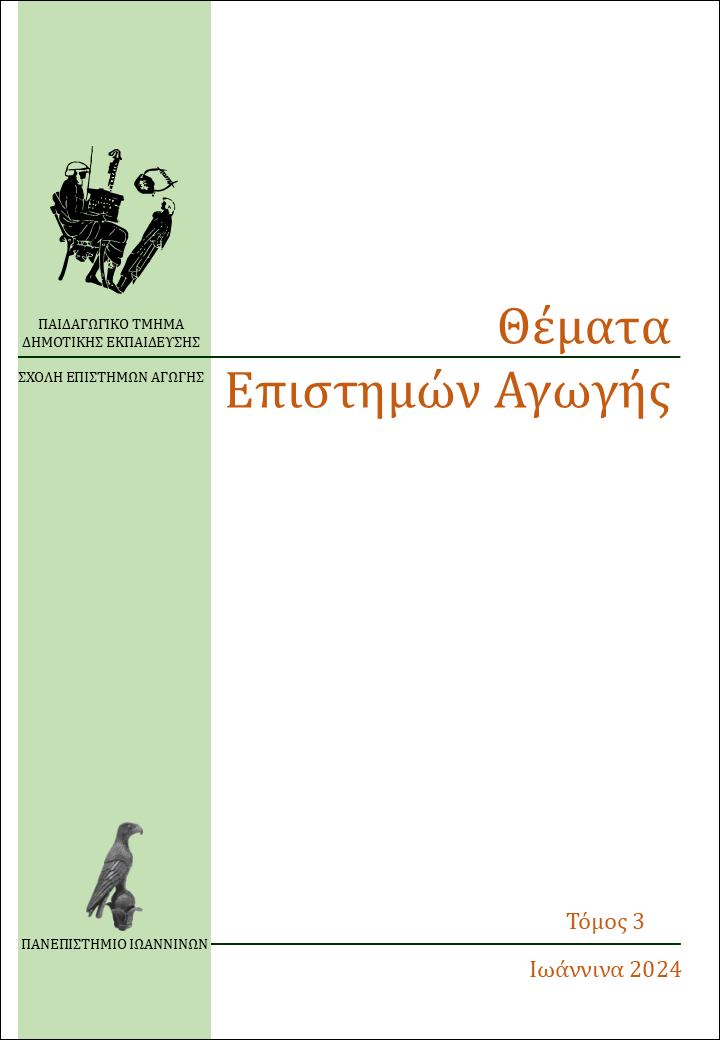Αντιλήψεις εκπαιδευτικών για την επαγγελματική ποιότητα ζωής: Ο προβλεπτικός ρόλος της παρακίνησης

Περίληψη
Η σχέση της παρακίνησης με την επαγγελματική εξουθένωση των εκπαιδευτικών έχει μελετηθεί ευρέως στη βιβλιογραφία αναδεικνύοντας την αμφίδρομη σχέση μεταξύ τους. Νεότερες προσεγγίσεις της επαγγελματικής εξουθένωσης, ως μία από τις διαστάσεις της επαγγελματικής ποιότητας ζωής, ανέδειξαν την ανάγκη διεύρυνσης των σχετικών ερευνών. Σκοπός της έρευνας είναι η μελέτη των αντιλήψεων των εκπαιδευτικών για την επαγγελματική τους ποιότητα ζωής -η οποία περιλαμβάνει την επαγγελματική εξουθένωση, την ικανοποίηση συμπόνιας και το δευτερογενές τραύμα- και η διερεύνηση της σχέσης της με την παρακίνηση. Στην έρευνα συμμετείχαν 389 εκπαιδευτικοί πρωτοβάθμιας και δευτεροβάθμιας εκπαίδευσης από την ευρύτερη περιοχή της Αττικής. Η συλλογή των δεδομένων έγινε ηλεκτρονικά με τη μέθοδο της χιονοστιβάδας. Η Κλίμακα Ποιότητας Επαγγελματικής Ζωής και η Κλίμακα Αυτόνομης Παρακίνησης για τη Διδασκαλία αποτέλεσαν τα εργαλεία της έρευνας. Οι αναλύσεις έδειξαν ότι οι εκπαιδευτικοί λειτουργούν κυρίως με βάση την εσωτερική παρακίνηση, αναφέρουν χαμηλά επίπεδα επαγγελματικής εξουθένωσης και δευτερογενούς τραύματος και σχετικά υψηλό επίπεδο ικανοποίησης συμπόνιας. Η ανάλυση παλινδρόμησης ανέδειξε τον προβλεπτικό ρόλο της εσωτερικής παρακίνησης μόνο σε σχέση με την ικανοποίηση συμπόνιας. Οι συγκρίσεις των μέσων όρων έδειξαν στατιστικώς σημαντικές διαφορές ως προς το φύλο, με τις γυναίκες να παρουσιάζουν υψηλότερους μέσους όρους σε όλους τους παράγοντες. Τα ευρήματα μπορούν να αξιοποιηθούν για τη στήριξη των εκπαιδευτικών, αλλά και τον σχεδιασμό μελλοντικών ερευνών.
Λεπτομέρειες άρθρου
- Πώς να δημιουργήσετε Αναφορές
-
Λαμπροπούλου Α. (2024). Αντιλήψεις εκπαιδευτικών για την επαγγελματική ποιότητα ζωής: Ο προβλεπτικός ρόλος της παρακίνησης. Θέματα Επιστημών Αγωγής, 3(1), 43–60. https://doi.org/10.12681/thea.37503
- Τεύχος
- Τόμ. 3 Αρ. 1 (2024)
- Ενότητα
- Επιστημονική Αρθρογραφία


